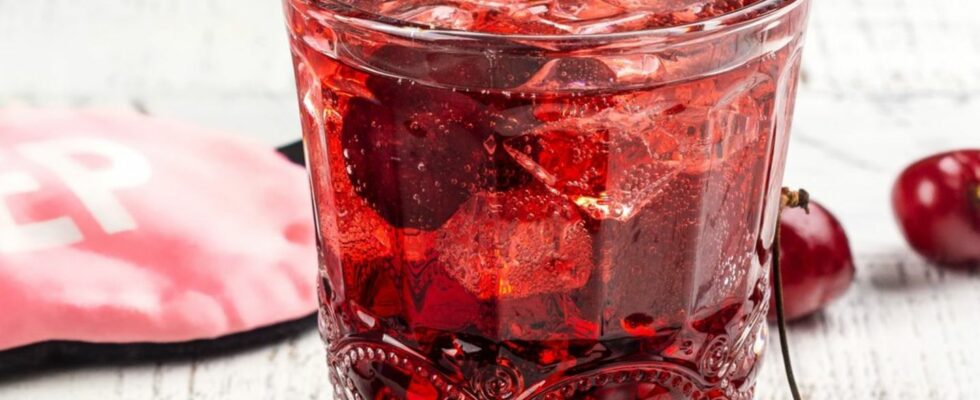“Sleepy Girl Mocktail”
Does the TikTok trend really help you sleep better?
Sour cherries and magnesium: the solution for better sleep?
© Ekaterina Markelova/Shutterstock.com
Fall asleep faster and stay asleep better with a simple drink? The “Sleepy Girl Mocktail” is currently all the rage on TikTok.
A short time to fall asleep and wake up completely refreshed in the morning – who doesn’t want that? Sleep is important for our well-being, our body and the brain. But many people find it difficult to doze off straight away in the evening and sleep through the night. This affects everyday life, health and psychology. On the social media platform TikTok, users are promoting a drink that is supposed to solve exactly this problem: the “Sleepy Girl Mocktail”.
What’s in the “Sleepy Girl Mocktail”?
The drink is said to shorten the time it takes to fall asleep. It consists of magnesium powder, tart cherry juice and mineral water or tonic water as well as ice cubes. The mocktail should then be drunk shortly before going to bed. Sour cherries are a natural source of the sleep hormone melatonin, and magnesium is also said to have sleep-promoting qualities.
“Magnesium may trigger signaling pathways in the brain that are important for falling asleep and staying asleep,” explains sleep researcher Dr. Christian Benedict at the request of the news agency spot on news. It also promotes the production of melatonin in the brain and reduces the release of the body’s stress hormone cortisol.
Does the “Sleepy Girl Mocktail” really do anything?
The sleep researcher does not rule out that the “Sleepy Girl Mocktail” actually has a sleep-promoting effect. However, he suspects that the effects advertised by numerous TikTok users are more likely to be a placebo effect. The same applies according to Dr. Benedict also for another TikTok trend that is supposed to contribute to good sleep: spraying magnesium spray on your feet.
Because: “The causes of poor sleep are often not caused by a magnesium or melatonin deficiency, but by other factors such as irregular bedtimes, drinking alcohol in the evening, using a smartphone in bed, persistent stress or even undiagnosed sleep disorders such as obstructive sleep apnea.”
